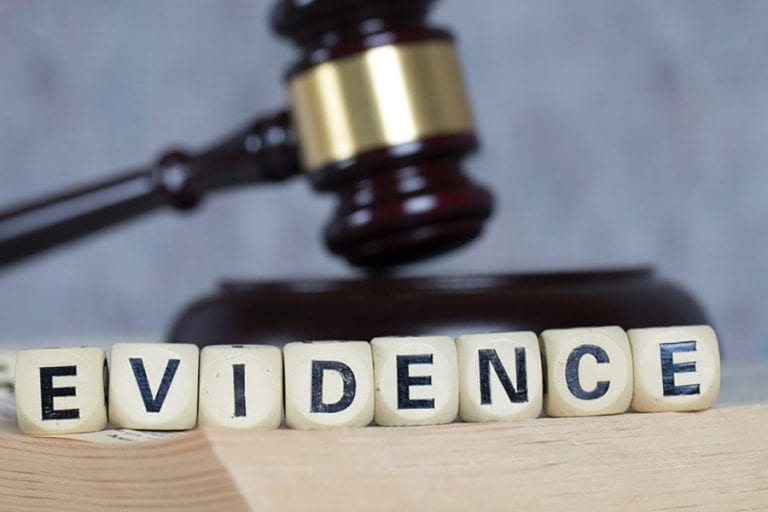ZHOU Ziqian, Jan
Centre for English Language Communication (CELC)
In this piece, Jan looks at the law of evidence and attempts to draw some insights with respect to our understanding of student evaluation reports.

Zhou, Z. (2022, Oct 29). What the law of evidence teaches us about ‘evidencing teaching’. Teaching Connections. https://blog.nus.edu.sg/teachingconnections/2022/10/29/what-the-law-of-evidence-teaches-us-about-evidencing-teaching/
In the law of evidence, a necessary condition for when a proposition can serve as a supporting premise for a conclusion is that it is ‘relevant’ or ‘admissible’. Further, in the law of evidence exclusionary rules are the gatekeepers for what counts as admissible or inadmissible evidence, or what jurors can receive in legal proceedings to infer a certain conclusion. Two such exclusionary rules are often discussed in the literature: the rule that excludes ‘hearsay’ and that which excludes judgments of the character.
Writing in the latter half of the 19th Century, famous English jurist James Fitzjames Stephen explains why it is that courts should exclude hearsay: allowing hearsay to count as legal evidence would ‘open a wide door to fraud’ such that ‘[e]veryone would be at the mercy of people who might tell a lie, and whose evidence could neither be tested nor contradicted’ (Stephen, 1872, pp. 124–125, quoted in Ho, 2021, section 2.3.1). Further, it is thought that the rule that excludes judgments of character is justified because it is not implausible to believe that the past behaviour of an accused does not necessitate the behaviour in the present specific case which is under legal scrutiny. So, it will not do to hold Jan guilty of theft simply because John says so; nor, will it do to hold him guilty simply because Jan has stolen before in the past.
This digression into the law of evidence may help explain why some educators are wary about student evaluation scores or comments. And, there are two hypotheses for this suspicion that the law of evidence gestures us towards: first, that student scores and feedback, say, can neither be tested nor contradicted; second, that such scores and feedback, even if verifiable and accurate, are general descriptions of a teacher’s character, which may waver from time to time. Take the latter for instance: just as soldier who is known to be brave in character may exhibit cowardice in moments of weakness, so too general remarks about a tutor’s character (e.g. “Jan is kind”) need not necessarily hold true for all occasions in which that tutor interacts with his students (e.g. there may be instances where Jan makes a rude comment about a student). As for the former, some researchers have argued that student perceptions or evaluative observations of their teachers are influenced by student demographic—which determines whether they ‘identify’ with or ‘endorse’ the cultural and gender identity of their tutor—as well as existing racial, sexist, and homophobic prejudices (see Heffernan, 2022; Lakeman et. al., 2021, Kwok & Potter, 2021; Sigudardottir et. al., 2022).
So, given the above possible twin ills of student evaluations, why then not develop exclusionary rules—of hearsay and character—that preclude such evidence from counting in favour of or against a teacher? The answer, I suspect, is this: the domain of legal proceedings is of undoubtedly higher stakes than that of the assessment of teaching performance. A guilty conviction marks one for life; but, the loss of a teaching award does not. As a result, the standard of proof in a court of law tends to be of a higher level than that which, say, a teaching awards committee operates with.

What other alternative sources of evidence are there for teachers? One way of showing evidence of effective teaching or learning is this: teachers can consider doing an open-ended poll or survey that tests their students’ understanding of the key concepts of their modules, e.g. ‘structural injustice’, ‘poverty’, ‘well-being’. Ideally, this poll or survey should be done right at the start of the course. Towards the end of the module, before the final assignment or test, a similar poll or survey can be administered. Results from the first poll or survey are helpful in getting teachers to understand their student’s existing assumptions and to sculpt their lessons accordingly; and, results from the second poll or survey can reveal if students have refined or overhauled their existing assumptions. The latter results can also be juxtaposed with the first and offered to students as feedback that speaks of their learning over two-time points.
 |
ZHOU Ziqian, Jan is a Senior Lecturer at the Centre for English Language Communication (CELC). A philosopher by training, Jan publishes mainly in the domain of metaphysics. His teaching interest, however, is in the fields of ethics and philosophical aspects of the law (especially the criminal law). He considers teaching to be the most satisfying work he does and feels that his students, perhaps unbeknownst to them, have taught him more than he has them. Jan can be reached at elczz@nus.edu.sg. |
References
Heffernan, T. (2022). Sexism, racism, prejudice, and bias: a literature review and synthesis of research surrounding student evaluations of courses and teaching. Assessment & Evaluation in Higher Education, 47(1), 144-154. https://doi.org/10.1080/02602938.2021.1888075
Ho H. L. (2021), The legal concept of evidence, In E. N. Zalta (Ed), The Stanford Encyclopedia of Philosophy (Winter 2021 Edition), https://plato.stanford.edu/archives/win2021/entries/evidence-legal/
Kwok, K., & Potter, J. (2021). Gender stereotyping in student perceptions of teaching excellence: applying the shifting standards theory. Higher Education Research & Development, 1-14. https://doi.org/10.1080/07294360.2021.2014411
Lakeman, R., Coutts, R., Hutchinson, M., Lee, M., Massey, D., Naswari, D., & Fielden, J. (2021). Appearance, insults, allegations, blame and threats: an analysis of anonymous non-constructive student evaluation of teaching in Australia. Assessment & Evaluation in Higher Education, 1-14. https://doi.org/10.1080/02602938.2021.2012643
Sigudardottir, M. S., Rafnsdottir, G. L., Jónsdóttir, A. H., & Kristofersson, D. M. (2022). Student evaluation of teaching: gender bias in a country at the forefront of gender equality. Higher Education Research & Development, 1-14. https://doi.org/10.1080/07294360.2022.2087604
Stephen, J. (1872). The Indian Evidence Act, with an Introduction on the Principles of Judicial Evidence. Thacker, Spink & Co.

